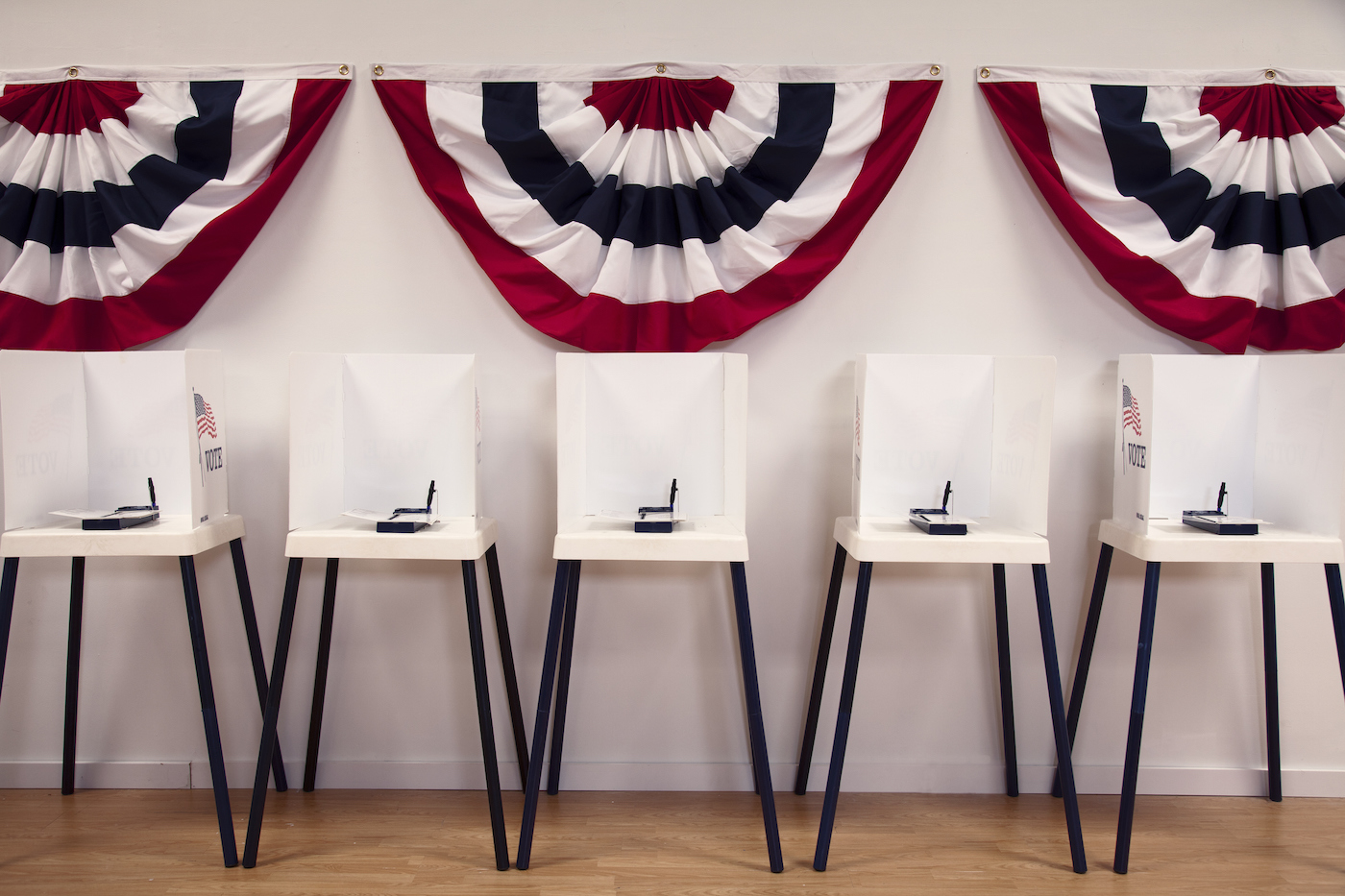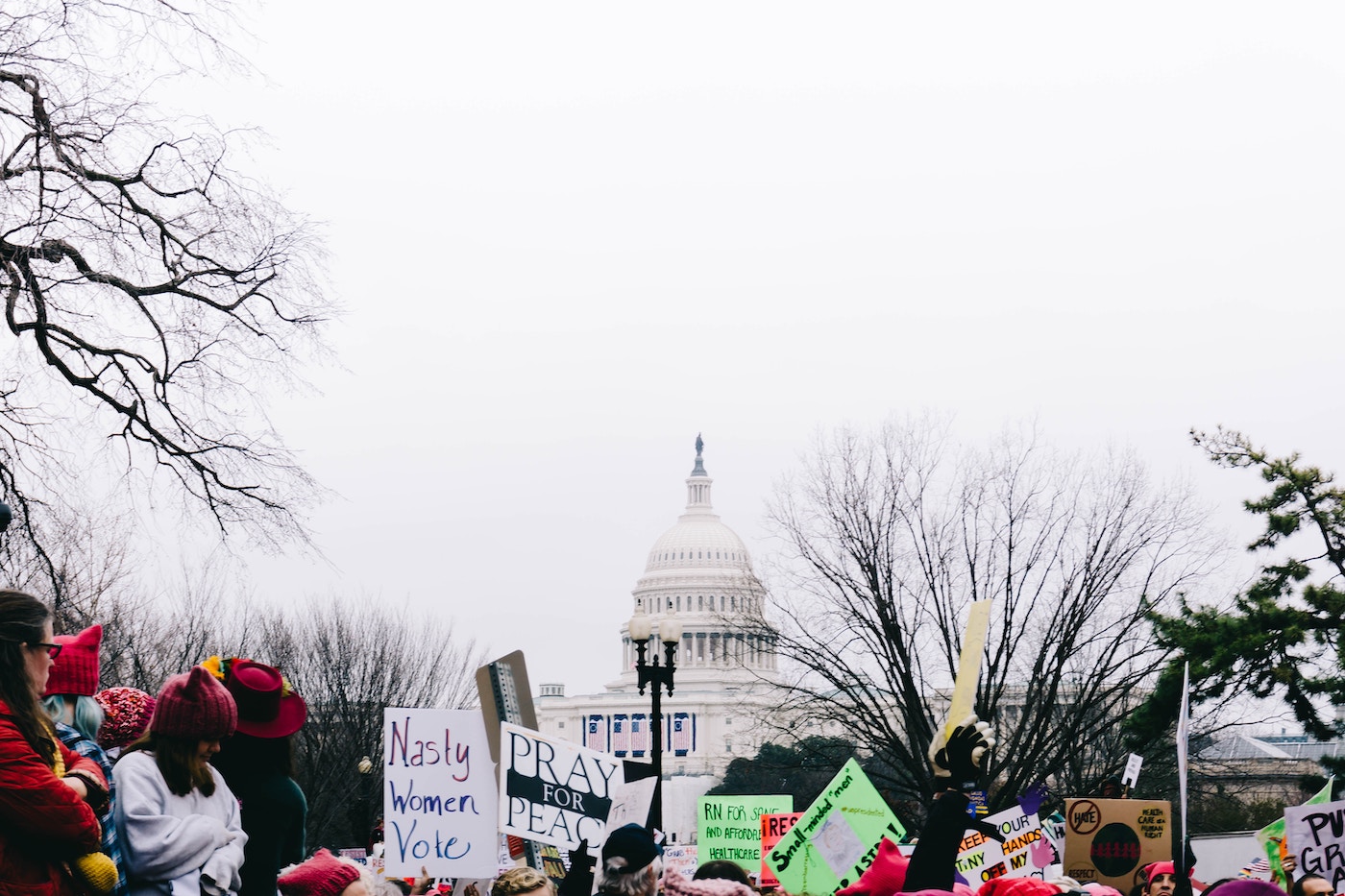Penn State Professor John Gastil & CSU Assistant Professor Katherine Knobloch
I got the chance to sit down with two authors who have a surprisingly optimistic view about politics and democracy. John Gastil is a professor at Penn State, and Katie Knobloch is an assistant professor at Colorado State University. They have collaborated on research for more than a decade, and Hope for Democracy: How Citizens Can Bring Reason Back Into Politics, forthcoming from Oxford University Press, is their first book together.
How did you come to writing, or did writing somehow find you?
JG: I’ve always loved writing. When I was in junior high, I wrote a terrible epic somethingorother about a space battle. Derivative garbage, I’m sure, but I was hooked.
KK: My family still jokes about a long fairy tale I wrote in the third grade called “Princess Marie’s Dream.” I wouldn’t say that I always love it, but it’s always been a part of my life.
Are there any books or authors that have influenced you along the way?
KK: Katherine Cramer’s Talking About Politics was pretty transformative for me. It was one of the first times that I’d seen a political scientist take citizens seriously. Michael Schudon’s The Good Citizen also helped me understand that as democracy evolves so does our understanding of what it means to be a citizen. Both gave me hope that we can find ways to make democracy better.
JG: In college I discovered books that used social science to make compelling arguments. Alfie Kohn’s No Contest challenged the assumption that competition is good for us, and Barry Schwartz’s The Battle for Human Nature argued that behaviorist psychology was ideology more than science. I can only aspire to write so well.
“There is real reason to worry and to resist the forces that undermine our democracy.”
The title of your book is Hope for Democracy: How Citizens Can Bring Reason Back Into Politics. The state of the U.S. government seems pretty bleak--is there any real hope for democracy?
JG: There is real reason to worry and to resist the forces that undermine our democracy. Our system is threatened every time elected officials try to make it harder to vote or they try to distort the process to make some votes count for more than others. That shows a contempt for democracy itself. Fortunately, there are counter-trends, and we bring those to the foreground so that readers can appreciate the reform efforts that are strengthening democracy in the US and other countries.
KK: Like John, I don’t think the problem is democracy itself. The problem is that our governing institutions are becoming less democratic. Many of the things we take for granted as democratic institutions are still "new," or they were built in distant historical contexts. Too often, politicians reshape those institutions to bolster their own authority while diminishing the public’s power. Maintaining democracy requires reforms that ensure the public’s access to good information and let them shape our collective decisions.
What are a few key ways that we as a society can improve our system of government and elections?
KK: I’m a big fan of anything that makes voting easier. Vote by mail and extended early voting are two small changes that could be implemented nationwide. We also need to create opportunities for people to talk to and learn from one another. Some cool processes like Participatory Budgeting or the Irish Constitutional Convention give citizens the chance to learn about, discuss, and make decisions regarding public policy. Those reforms also give people real power, which they exercise responsibly. In Participatory Budgeting, community members get to decide how a pool of government funding gets spent. The Irish government has held referendums on recommendations from their public processes, resulting in the legalization of both same-sex marriage and abortion. Their success shows that change is possible.
You write about how concerned citizens are finding new ways to make their governments more democratic and effective. The central case study in your book is the Oregon Citizens' Initiative Review. Why has the Oregon process been so effective?
JG: The Citizens’ Initiative Review uses a small randomly selected group of voters to study a ballot measure, then write a one-page analysis that goes in the official voter pamphlet. This project has worked well partly because it began as a modest project. The Review never tried to take on too many different initiatives, and it kept its focus on a simple task--writing just one page of key findings and pros and cons in simple language voters could understand.
KK: That’s exactly right. As a result, we saw the Review panels deliberating well over four or five days. And voters found the Reviews helpful when it came time to vote.
“I hope that we continue to see more new voters and that people begin to understand that their votes really do matter.”
What do you think this next election cycle could bring about in our country?
KK: It’s harder than ever to predict what’s going to happen in elections, but I’m excited by the increase in voter turnout in the 2018 midterms. I hope that we continue to see more new voters and that people begin to understand that their votes really do matter.
JG: I’ll stick my neck out and make this forecast: the Democratic Party will have a dozen viable candidates competing for media attention through the entire primary. Heading into the convention, the leading candidate will have a thin margin and no majority because the Democrats don’t have winner-take-all primaries. The raucous convention that follows will give voice to attendees, who could choose a nominee who embraces a bold policy agenda focused on fighting corruption and empowering citizens. This could be a persuasive message for an electorate that still feels shut out of Washington after having elected a populist outsider in 2016.
“We wrote a book that tells stories about real people fighting for democracy.”
Is it liberating to work in a collaboration in the book writing process? What's it like working with a co-author?
KK: Yes. I often get to the point in writing where I can’t really read what I’ve written anymore. Being able to hand it off to a co-author gives me a break from the work and lets me see it with fresh eyes when it comes back. Collaborating also makes me a better writer. John is funny and makes great analogies. Trying to speak with one voice forces me to push the boundaries of traditional academic writing.
JG: And Katie’s writing kept me grounded. We wrote a book that tells stories about real people fighting for democracy. When I needed to bring a new academic theory into our story, I’d remember how concrete Katie could make that information, then I’d try to do the same.
How did you find your current literary agent and get your latest book published with Oxford University Press?
JG: I attended the Pennwriters annual conference in Pittsburgh in May 2017, just a few months into the Trump presidency. The agents I met with were excited to work on a book that offered a hopeful message about politics. In the end, I chose you, Mark because of your reputation, your interest in representing an author—not just a single book, and the power of Trident Media. We settled on Oxford because of their success publishing books on democracy and because the editor we worked with there, David McBride, is a wonderful collaborator. David’s irrational and enduring affection for The Big Lebowski also helped seal the deal.
Oxford University Press seems like a terrific and prestigious publisher for those writing close to, or within, academic publishing...are you excited to work with OUP?
KK: Absolutely, particularly for my first book. Oxford has published some of the most important works on democracy, like Iris Marion Young’s Inclusion and Democracy and John Dryzek’s Foundation and Frontiers of Deliberative Governance. It’s humbling and a little intimidating to share their same publisher.
“Work hard, do your best, and then let it go.”
Do you have any advice for writers looking to become published authors?
JG: The best advice I can give is to find a co-author like Katie. You want someone who thinks differently from you but shares your sense of humor and style, a diligent collaborator who inspires you to sharpen your argument and your words. Having a friend writing alongside you can make an otherwise solitary task into a joyful collaboration.
KK: Thanks, John. One of the things that John taught me is to celebrate the submission more than the publication. Work hard, do your best, and then let it go. You can’t control the outcome, but no one is ever going to read your work if you don’t take that risk.





